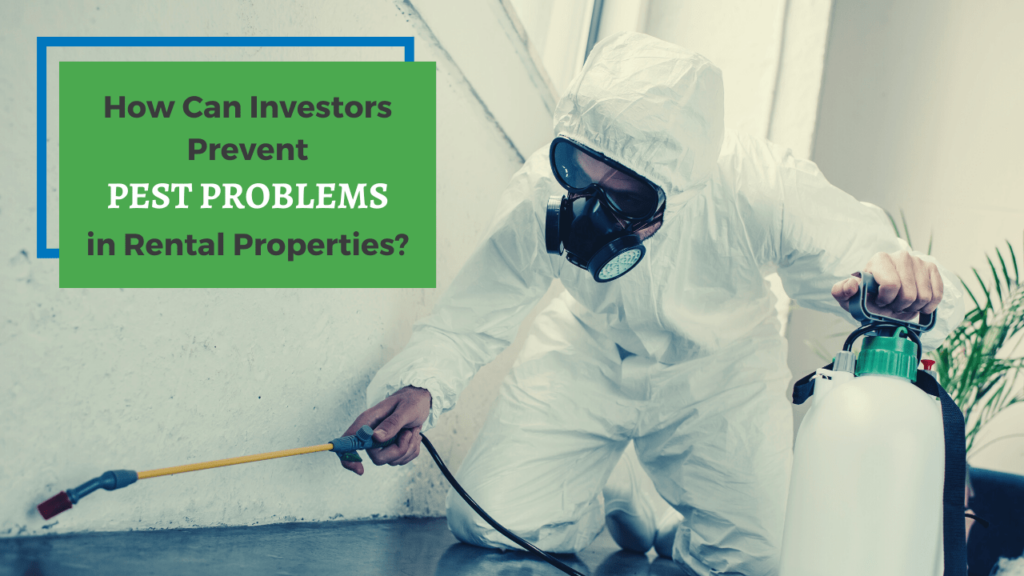
There’s a long list of things rental property owners don’t love talking about.
Pests are a topic on that list.
But bugs will happen – even when your rental property happens to be a beautiful, clean, and well-maintained home in Winston-Salem or the surrounding areas. Occasionally, an infestation of ants will occur. A rat or a squirrel will take up residence in some unreachable place like an attic or behind a wall, and your residents will ask for help.
You may wonder who is responsible for preventing pest problems. You may also be wondering if this could quickly become a habitability issue.
Here’s what you can do to prevent pest problems and train your tenants to keep your home free of bugs and rodents.
Pest Prevention and Habitability in Winston-Salem Rental Homes
Cockroaches, ants, wasps, bees, termites, and other bugs coming into a property are a nuisance but not necessarily a health or safety issue.
Rodents, however, present serious health problems to residents and require more aggressive tactics from landlords in order to keep a home habitable.
Renting out an investment property in Winston-Salem, your responsibility is to hand over a home that’s pest-free, to begin with. Hire an exterminator or work with a property management company before move-in to take care of any exclusion work that will eliminate bugs to the best of your ability.
Not everything is preventable or avoidable. Spiders will get inside. Silverfish will show up in tubs and sinks. These issues are often unavoidable, but make every effort to hand your tenants a rental home that’s free of any pests.
After you have provided a pest-free property, you can require your residents to keep it pest-free.
Here’s how to prevent pests in a single-family home or a multi-family property:
- Keeping the areas around homes and buildings free of weeds and brush that might attract pests.
- Seal all cracks and holes on the exterior.
- Keep the building up to code.
- Invest in a good waste management plan.
- Make pest control part of your property inspections, especially during turnovers.
We also recommend an over-the-counter pest treatment during every turnover, especially if the tenant moving out had pets that might have attracted or carried insects. After a tenant moves out, you can eliminate any lingering or unseen pest problems before your next tenant moves in.
Partnering with Tenants to Control Pests
Educate your residents on what you expect in terms of cleanliness and pest control during the tenancy. You’re providing a pest-free home, but it won’t stay that way if your residents move in and leave dog food out all day or wait to take out the trash until it’s spilling onto the floor.
Encourage your residents to reduce clutter, which is often a hiding spot for pests. Make sure your pet policy requires tenants to treat those pets for ticks and fleas. Ask tenants to check their furniture before moving in; bedbugs and other pests can come with them into your home.
It’s also useful for tenants to inspect any boxes or packaging for pests and insects, many of which love to live in cardboard.
Address Pest Control in Lease Agreements
Your lease agreement should be clear on pest control responsibilities and requirements. If you’re downloading any lease template you find on the internet, it may not include this critical information. When there’s nothing specific in the lease, you can expect all pest and rodent responsibilities to default to the landlord.
![]() Trying to decide how to handle and prevent pests? Please contact us at Capstone Realty Consultants if you have any questions about our property management services in Winston-Salem.
Trying to decide how to handle and prevent pests? Please contact us at Capstone Realty Consultants if you have any questions about our property management services in Winston-Salem.
